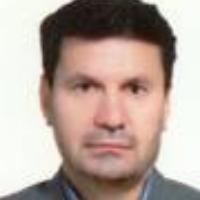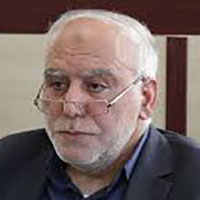The Effectiveness of Psychosocial Model-Based Therapy on Social Skills in People With PTSD After Burn
Author(s):
Article Type:
Research/Original Article (دارای رتبه معتبر)
Abstract:
Objective Because burns are one of the traumatic events that causes Post-Traumatic Stress Disorder (PTSD) and the scar caused by an accident causes changes in the skin and the appearance of the patient, these people will have problems in their social relationships that affect their lives and social skills. Therefore, the present study was conducted with the aim of evaluating the effectiveness of psychosocial model-based treatment plan on social skills of people with PTSD resulting from burn.
Materials & Methods The present study was carried out in two stages. In the first stage, following the review of literature and therapeutic theories and concepts based on the psychosocial perspective, a plan was developed. Then, in order to validate the treatment program, 10 specialists and experts in clinical and health psychology department were consulted to determine the validity of the proposed plan. In the second stage, after designing and validating the program, a quasi-experimental design with pre-test and post-test design with control group was implemented. The statistical population included all female patients referring to Tehran Shahid Motahari Burn Rescue Hospital in 2017. They were evaluated in a two stage sampling. In the first step, according to simple random sampling method, a semi-structured diagnostic interview was conducted based on DSM-5 psychiatric disorders criteria by a clinical psychologist and by performing a PTSD checklist screening. In the second stage based on simple random sampling method, 30 patients were selected from the subjects with PTSD (In each group of 15 people, with a drop in the post-test phase, 13 patients in examination group and 15 in the control group remained). The psychosocial treatment program was conducted in 12 sessions and followed up for two months in the experimental group. Measurement tools including semi-structured diagnostic interviews based on DSM-5, PTSD Checklist-5 (PCL-5) and Social Skills Inventory (SSI) were used to collect data, and the results were analyzed in SPSS V. 22 by performing MANCOVA to examine the effect of intervention and dependent t test on the survival of the treatment.
Results The results showed that the program had acceptable content validity so that the Content Validity Index (CVI) based on the Lawshe method for the treatment program was 0.85 (with a minimum acceptable value of 0.62 for this number of specialists), and the CVI based on the Waltz and Bausell method for the treatment program was 0.92 (The minimum acceptable value is 0.79). Accordingly, the content validity and the CVI of the program are acceptable. The results of the treatment intervention showed that considering the higher mean scores of the experimental group compared to control group in the post-test and follow up stage, the psychosocial model-based program improved social skills, including social expression, emotional expression, social sensitivity, emotional sensitivity, social control, and emotional control in people with PTSD due to burn injuries (P<0.05). The results of t dependent test to determine the survival rate of treatment by comparing pretest and follow-up of the experimental group showed that the effect of the plan on improving social skills remained in the follow-up phase (P<0.05).
Conclusion Based on the results, patients with PTSD due to burned scar have a disadvantage in terms of proper social communication and social skills. Also a psychosocial model-based therapeutic program can effectively improve the social skills of patients with PTSD due to burns
Materials & Methods The present study was carried out in two stages. In the first stage, following the review of literature and therapeutic theories and concepts based on the psychosocial perspective, a plan was developed. Then, in order to validate the treatment program, 10 specialists and experts in clinical and health psychology department were consulted to determine the validity of the proposed plan. In the second stage, after designing and validating the program, a quasi-experimental design with pre-test and post-test design with control group was implemented. The statistical population included all female patients referring to Tehran Shahid Motahari Burn Rescue Hospital in 2017. They were evaluated in a two stage sampling. In the first step, according to simple random sampling method, a semi-structured diagnostic interview was conducted based on DSM-5 psychiatric disorders criteria by a clinical psychologist and by performing a PTSD checklist screening. In the second stage based on simple random sampling method, 30 patients were selected from the subjects with PTSD (In each group of 15 people, with a drop in the post-test phase, 13 patients in examination group and 15 in the control group remained). The psychosocial treatment program was conducted in 12 sessions and followed up for two months in the experimental group. Measurement tools including semi-structured diagnostic interviews based on DSM-5, PTSD Checklist-5 (PCL-5) and Social Skills Inventory (SSI) were used to collect data, and the results were analyzed in SPSS V. 22 by performing MANCOVA to examine the effect of intervention and dependent t test on the survival of the treatment.
Results The results showed that the program had acceptable content validity so that the Content Validity Index (CVI) based on the Lawshe method for the treatment program was 0.85 (with a minimum acceptable value of 0.62 for this number of specialists), and the CVI based on the Waltz and Bausell method for the treatment program was 0.92 (The minimum acceptable value is 0.79). Accordingly, the content validity and the CVI of the program are acceptable. The results of the treatment intervention showed that considering the higher mean scores of the experimental group compared to control group in the post-test and follow up stage, the psychosocial model-based program improved social skills, including social expression, emotional expression, social sensitivity, emotional sensitivity, social control, and emotional control in people with PTSD due to burn injuries (P<0.05). The results of t dependent test to determine the survival rate of treatment by comparing pretest and follow-up of the experimental group showed that the effect of the plan on improving social skills remained in the follow-up phase (P<0.05).
Conclusion Based on the results, patients with PTSD due to burned scar have a disadvantage in terms of proper social communication and social skills. Also a psychosocial model-based therapeutic program can effectively improve the social skills of patients with PTSD due to burns
Keywords:
Language:
Persian
Published:
Archives of Rehabilitation, Volume:19 Issue: 3, 2018
Pages:
206 to 219
https://magiran.com/p1892961
سامانه نویسندگان
مقالات دیگری از این نویسنده (گان)
-
The negative effects of dynamic psychotherapies based on the characteristics of the therapist, the therapist, and the treatment approach: a qualitative study.
Hossein Mohajeri, Farmarz Sohrabi*, Enayatollah Zamanpour
Journal of Psychological Sciences, -
The comparison of the fit person Statistics Precision based on the Rasch model to identify the response style of acquiescence
Tayebe Dehghan Nayeri, Noorali Farrokhi *, , Ebrahim Alizadeh
Educational Psychology, -
Development and Validation of Emotion-Focused Cognitive Behavioral Protocol Based on SPAARS Model: A Descriptive Study
Mohamadhasan Shameli, *, Abolghasem Isamorad, Afrooz Afshari, Mohamad Asgari
Journal of Rafsanjan University Of Medical Sciences, -
The Effect of Social Media Use on Depression with the Mediating Role of Body Image
Faezeh Bahmanmirza, Farideh Hosseinsabet *,
Journal of New Media Studies,



